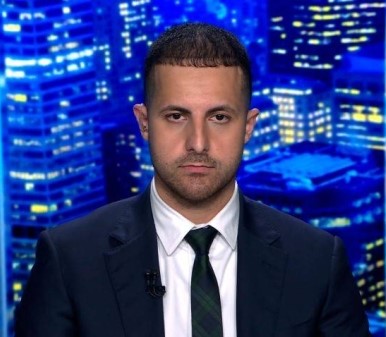Washington DC, April 4: In a notable shift of plans, six Muslim leaders have opted out of a White House Ramadan dinner invitation, choosing instead to meet with President Biden and Vice President Harris to discuss U.S. policy concerning the Gaza Strip. The decision comes amidst ongoing devastation in the region and concerns over the administration’s perceived support for Israel.
Initially invited for iftar, the traditional meal marking the end of daily fasting during Ramadan, the leaders expressed a preference for a policy-focused meeting. White House press secretary Karine Jean-Pierre confirmed that the administration accommodated this request, adjusting its plans accordingly.
The move underscores the significant challenges President Biden faces in garnering support from the Arab American and Muslim communities, particularly in light of his stance on the Gaza crisis. Salima Suswell, leader of the Black Muslim Leadership Council, emphasized the importance of engagement, stating, “I have been consistent in my position that engagement is very important right now.”
This marks President Biden’s first meeting with Muslim leaders in approximately five months. Previous interactions in October were marked by dissatisfaction over perceived insensitivity toward Palestinian civilian deaths during the Israel-Gaza conflict. Since then, tensions have escalated, with growing protests against the US administration’s support for Israel.
The decision to forgo the iftar dinner in favor of a policy meeting reflects a concerted effort by the White House to address the concerns of the Muslim community. Jean-Pierre noted, “This was actually a request from members of the community. This is what they wanted, and we understand that.”
However, this move also highlights the delicate balance prominent Arab Americans and Muslims navigate, with some advocating for continued engagement with the administration to influence policy while others express disapproval and skepticism.
As tensions persist in the Middle East and political challenges loom, the meeting between President Biden and Muslim leaders serves as a pivotal moment in shaping U.S. foreign policy in the region and addressing the concerns of marginalized.
 Dr. Thaer Ahmad, an emergency physician from Chicago who traveled to Gaza earlier this year, told that he abruptly left the meeting that included Vice President Kamala Harris, national security adviser Jake Sullivan, other administration officials and a small group of Muslim community leaders.
Dr. Thaer Ahmad, an emergency physician from Chicago who traveled to Gaza earlier this year, told that he abruptly left the meeting that included Vice President Kamala Harris, national security adviser Jake Sullivan, other administration officials and a small group of Muslim community leaders.
Amidst the backdrop of escalating violence and humanitarian crisis in Gaza, the decision to scale back the White House’s Ramadan observance reflects the sentiments echoed by many within the Muslim community. With Palestinians enduring violence and deprivation, attending the iftar dinner while such atrocities persist is viewed as an act of complicity.
Last year, the White House chose not to hold an iftar dinner but instead hosted a reception for Eid al-Fitr, a significant festival marking the end of Ramadan. This year, President Biden continues his tradition of honoring the Muslim community during Ramadan by hosting a meeting with Muslim leaders to discuss pressing issues. The subsequent iftar, described as a small gathering with senior Muslim administration officials, follows the meeting.
The timing of Ramadan this year coincides with the dire situation in Gaza, where thousands have lost their lives since Israel’s military campaign began. Despite calls for an immediate ceasefire, President Biden has yet to take decisive action, prompting criticism from within his own party and beyond.
White House officials have engaged in discussions with Arab American and Muslim leaders across various cities, acknowledging the importance of addressing their concerns. However, some leaders have declined invitations to these meetings in solidarity with the plight of Palestinians in Gaza.
The administration’s handling of the conflict is not only sparking anger and concern within the Muslim community but also presenting political challenges for President Biden, particularly in battleground states like Michigan. The dissatisfaction with his approach was evident in the state’s Democratic primary, where a significant number of voters chose “uncommitted” as a message to the president. Moreover, Biden has faced interruptions from activists on the campaign trail, reflecting the urgency and gravity of the situation in Gaza.




